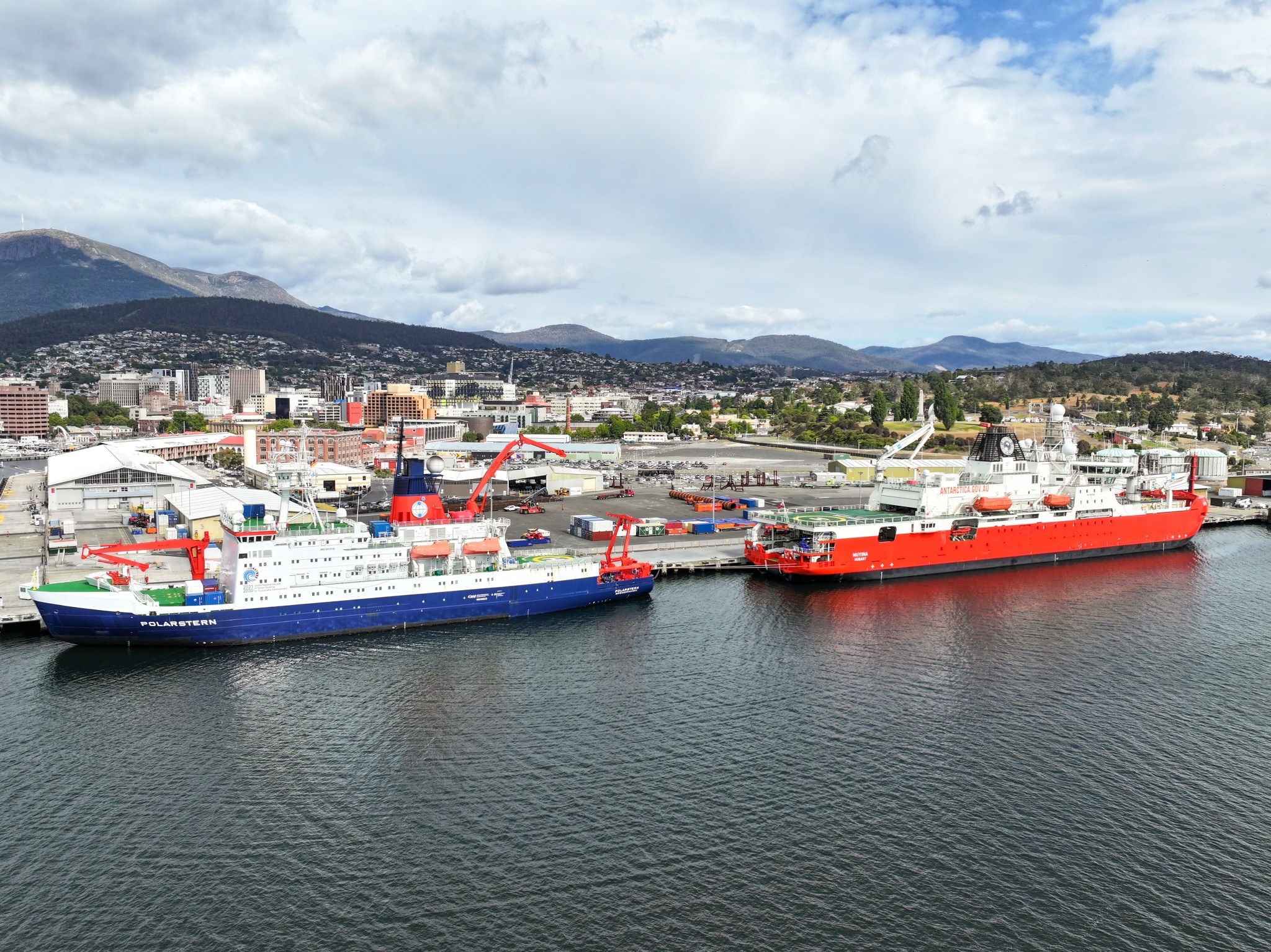The Polar Pathfinder | Icy Frontiers with RV Polarstern
After 63 days at sea, TasPorts proudly welcomed Germany’s renowned icebreaker and symbol of polar research - RV Polarstern.
Posted
08 February 2024
After 63 days at sea, TasPorts proudly welcomed Germany’s renowned icebreaker and symbol of polar research - RV Polarstern.
Posted
08 February 2024
As the gateway to the Southern Ocean, the Port of Hobart was pleased to welcome Germany’s icebreaker RV Polarstern last week on her maiden voyage to Tasmania.
The arrival of this vessel for the first time in her 40 years of service is a demonstration of Hobart’s strategic importance as Australia’s hub for Antarctic research and logistics.
As one of the world’s five Antarctic gateway cities, Hobart is a centre of Antarctic science, education, research and logistics, with a longstanding and highly professional commitment to the care and management of the Antarctic.
Launched in the early 80’s, the RV Polarstern boats an impressive array of features designed to tackle the polar challenges.
It has a double-hulled construction, ensuring resilience against thick ice, while its powerful propellers and icebreaking rams push through frozen barriers with ease.
The vessel is equipped with advanced navigation systems and cutting-edge research laboratories, transforming it into a floating science city capable of supporting diverse disciplines, from oceanography and climate research to glaciology and marine biology.
The RV Polarstern’s illustrious career is marked by groundbreaking expeditions. In 2008, it became the first research vessel to navigate both the Northeast and Northwest Passages in a single voyage, circumnavigating the North Pole. This historic feat not only demonstrated the vessel’s capabilities, but also provided invaluable data on a rapidly changing Arctic.

The RV Polarstern is more than just a vessel, it’s a symbol of international collaboration and dedication to scientific progress. Aptly named “Polarstern” or North Star, is a testament to human ingenuity and the enduring quest to understand the Earth’s coldest and most remote regions.

Built |
1982 |
Length (LOA) |
118 m |
Beam overall |
25 metres |
Maximum draught |
11 metres |
Maximum speed |
16 knots |
Engines |
4 x KHD RBV 8M540 |
Capacity |
124 people |
Crew |
44 |
Charting a course for discovery, the charted route to Antarctica isn’t just another sightseeing tour, for RV Polarstern. It is a scientific expedition brimming with potential to unlock the secrets of the frozen continent and its vital roles in the health of our planet.
Together with the GEOMAR Helmholtz Centre for Ocean Research, Kiel and the Christian Albrechts University of Kiel, as well as their Australian and international partners, the Alfred Wegener Institute (AWI) Helmholtz Centre for Polar and Marine Research will be conducting three expeditions as part of the East Antarctic Ice Sheet Instabilities (EASI) initiative.
The EASI initiative will investigate the history of the East Antarctic Ice Sheet and its interaction with circulation changes in the Southern Ocean.
You can follow the journey of the RV Polarstern via the GeoMar website, which details the discoveries day-by-day.
As the vessel continues her icy voyages, it reminds us that through collective effort, we can unlock the secrets of the polar regions and navigate the challenges of climate change.
You can keep up-to-date on the position from aboard the RV Polarstern via the Polarstern app.
Image credit: RV Polarstern at the Port of Hobart, courtesy of the City of Hobart.